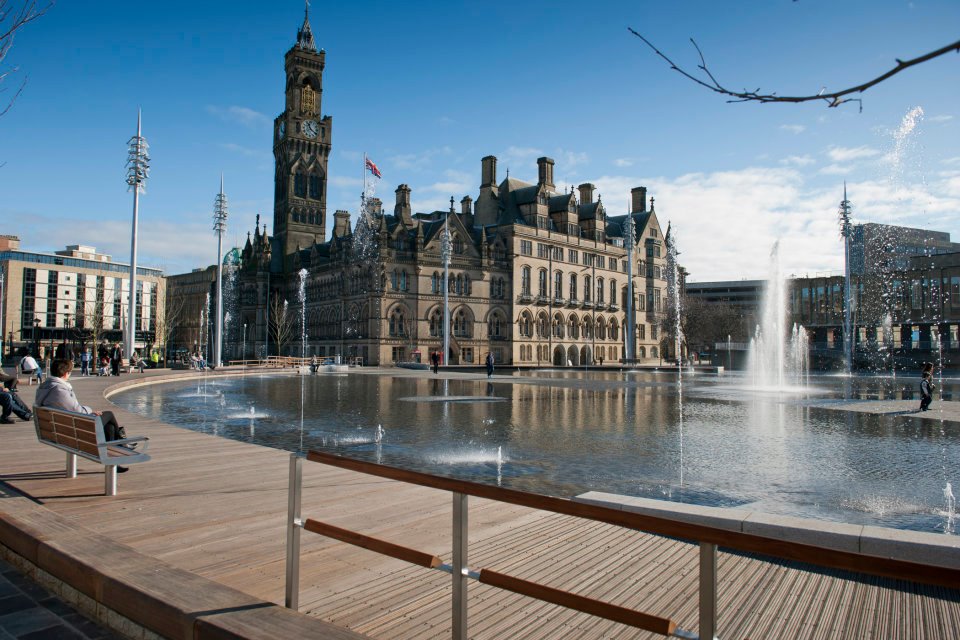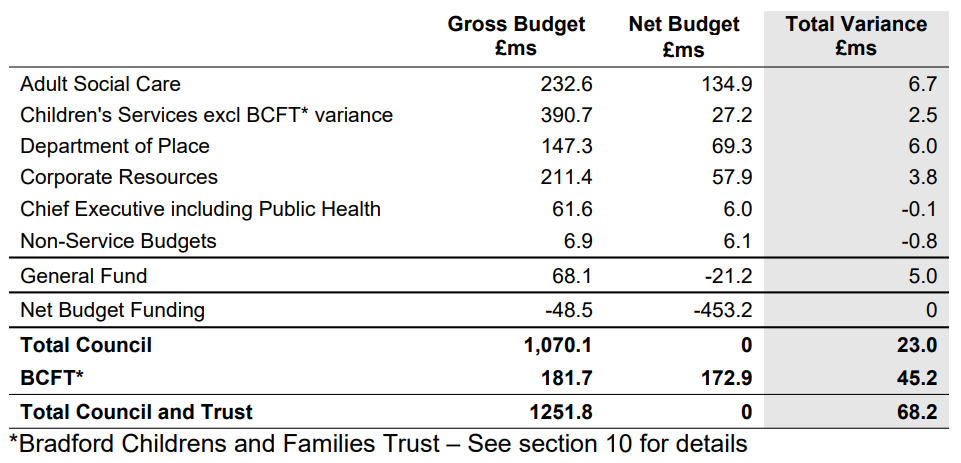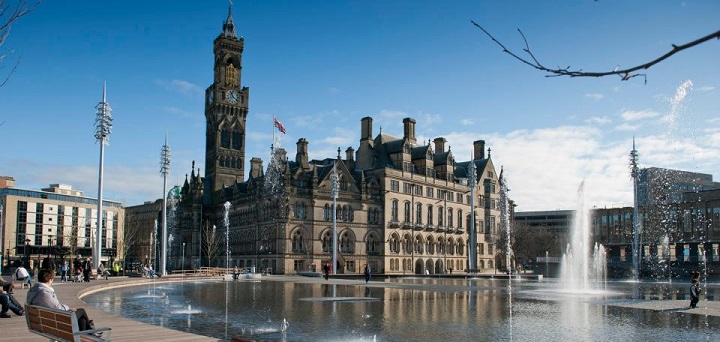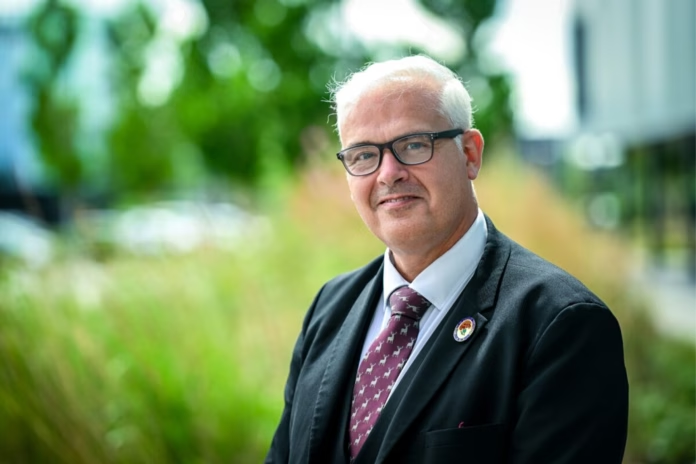Bradford Council is in a “financial emergency” requiring “extraordinary support” from government and urgent local action.
That’s according to director of finance Christopher Kinsella, whose Q2 finance position statement has revealed that the authority is facing a £68m gap in its budget for this year.
There will be a budget gap of £23m in the council and £45m in Bradford Children and Families Trust (BCFT) if nothing else changes, the authority said.
BCFT took over the delivery of children’s social care services from the council in April, and is independently run by a board of trustees and wholly funded by the council.
Earlier estimates had put the council’s budget gap at £13.8m, as reserves were “close to exhaustion” after £30m was required to balance the budget in financial year 2022/23.

The main drivers of the budget pressure are extra demand and escalating costs for children’s social care and adult social care, Bradford Council said, along with the “impact of the extraordinary levels of inflation and the ongoing cost-of-living crisis”. The council spends 76% of its annual budget on adult and children’s services.
The need for “expensive” residential care placements for children – which now average in the region of £312,000 per child per year – and high levels of agency social workers are the main causes of the budget pressure in BCFT, the authority added.
BCFT is forecasting it will spend £242m on children’s social care alone this year, which is 25% over budget. For comparison, Bradford Council raises £233m a year from council tax.
In the Q2 finance position statement for 2023-24, Kinsella highlighted the “unprecedented scale” of Bradford Council’s financial challenges.
Kinsella wrote: “The council has previously used its reserves to help cover the acute financial pressures associated with inflation and children’s social care. While action has since been undertaken to replenish reserves reliance upon them is unsustainable. It is likely that even with mitigating action to reduce overspends reserves will be depleted this year.”
Due to the scale of the financial challenges and the likely depletion of reserves, the council has been in dialogue with the Department for Levelling Up Housing and Communities (DLUHC) and the Department for Education (DfE) “for some time” to explore potential solutions.
Such solutions include access to additional sources of funding which would help to secure a sustainable financial position.
Susan Hinchcliffe, leader of Bradford Council, has written to the government to ask for “urgent improvement” in how local government is funded.
She said: “Government reforms to the funding of local authorities that would benefit Bradford by £32m a year based on independent analysis have been repeatedly delayed. The Local Government Association estimates that councils across the country now collectively have a funding gap of £2.4bn this financial year.”

Hinchcliffe has also called on the government to ensure that the Bradford Children and Families Trust is “properly funded”. “We need the government to provide better funding for disadvantaged children across the children’s social care sector nationally. But specifically in Bradford we know that we have the youngest population in the country as well as a high level of social need. This needs sustainable funding from central government accordingly,” she said.
“Government has equally not done enough to stem the spiralling costs of private providers of children’s care placements. Research nationally has shown that the 20 largest providers are making nearly 20% profit out of disadvantaged children’s care.
“The chancellor will present his Autumn Statement to parliament on 22 November, setting out the Government’s spending plans. It is his chance to put the deficit in children’s social care right. If he does that, we won’t have to make the drastic cuts that we are currently having to consider.”
In his report, which will be considered by senior councillors at a meeting of Bradford Council’s executive board on Tuesday 7 November, Kinsella wrote: “Without national support the consequences for local services and our communities are likely to be severe and will require more difficult decisions to be made about services, spending and the allocation of resources.
“Councils like Bradford will be forced to cut services to the statutory minimum dealing largely with crisis interventions; whilst discretionary prevention and early help services would face cuts resulting in increasing pressure on the NHS; quality of life in our communities would deteriorate as facilities have to be closed and services cease and our ability to support growth would be decimated.”
Kinsella noted that there are “numerous precedents” for the provision of government funding for councils facing similar financial challenges. One example is Dedicated Schools Grant: Safety Valve funding, which he said had supported a “growing number” of councils. “Surrey will receive c£100m of additional funding via its Safety Valve agreement. Others, such as Croydon have been permitted to undertake capitalisation enabling them to borrow to meet immediate financial pressures. Bradford has never received any such support from government as it has not previously had a deficit in this area,” he wrote.
“Bradford faces a financial emergency resulting from a complex combination of factors and will need extraordinary support from government in addition to urgent local action and difficult decisions if it is to achieve a balanced and sustainable position. This support may take the form of an application for capitalisation which would allow the council to borrow to address its immediate challenges and allow time to secure a stable and sustainable future for council services and children’s social care.”
Bradford Council has already ceased all non-essential spending, frozen non-essential recruitment and is conducting a full spending review to identify measures to balance its budget.
The authority said it was working with the children’s trust to help control and reduce costs, while it has reviewed reserves and the capital programme, increased fees and charges and begun a “wide-ranging” transformation programme.
—————
FREE weekly newsletters
Subscribe to Room151 Newsletters
Follow us on LinkedIn
Follow us here
Monthly Online Treasury Briefing
Sign up here with a .gov.uk email address
Room151 Webinars
Visit the Room151 channel












